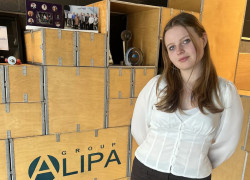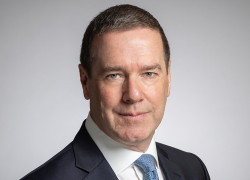Deloitte survey: risk management gains momentum
Deloitte recently published its eighth biennial global survey on risk management, titled ‘Setting a Higher Bar’.
Financial institutions recognise the growing importance and value of sound risk governance and management and are becoming increasingly confident in their abilities, but they also recognise there is still room for significant improvement.
Laurent Berliner, local partner and Enterprise Risk Services leader for the financial services industry across the EMEA (Europe, Africa, Middle-East, Africa) region of Deloitte
The survey indicates that in 2012, two-thirds of financial institutions reported an increase in spending on risk management and compliance due to heightened regulatory scrutiny and greater concerns over risk governance, up 55% from 2010.
Deloitte’s survey, conducted from September to December 2012, assesses the risk management programmes, planned improvements, and continuing challenges among global financial institutions. The eighth edition surveyed chief risk officers – or their equivalent – from 86 financial institutions, and represents a range of financial services sectors, including banks, insurers, and asset managers, with aggregate assets of more than US$18 trillion (approx. €13.56 trillion).
However, a closer look at the numbers finds that there is a divergence when it comes to the spending patterns of different-sized firms. Larger firms who have had several years of regulatory scrutiny, continue to focus on areas like risk governance, risk reporting, capital adequacy and liquidity. In contrast, firms with assets of less than US$10 billion (approx. €7.53 billion) are now concentrating on building capabilities to address their new regulatory requirements.
The majority of institutions participating in the survey (58%) plan to increase their risk management budgets over the next three years, with 17% anticipating annual increases of 25% or more.
Risk management moves up the boardroom agenda
Alongside increased spending, risk management has also significantly risen up the agenda in the boardroom. According to the survey’s results, 94% of company boards now devote more time to risk management oversight than five years ago, and 80 % of chief risk officers report directly to either the board or the Chief Executive Officer (CEO). Additionally, 98% of company boards or board-level risk committees regularly review risk management reports, an increase from 85% in 2010.
Other major findings in the survey include:
- Almost three out of four risk managers rated their institution to be either extremely or very effective in risk management overall, an increase from 66% in 2010’s survey results.
- Due to increased regulation, 48% of firms confirmed that they have had to adjust product lines and/or business activities, a percentage that has doubled from 24% in 2010.
- The use of institution-wide Enterprise Risk Management (ERM) programmes is continuing to grow. Today, 62% of financial institutions have an ERM strategy in place, up from 52% in 2010, while a further 21% are currently building a programme. The total of 82% of firms either with or building an ERM programme is significantly up from 59% in 2008.
- Institutions are increasingly confident about their effectiveness in managing liquidity risk (85% rate themselves as extremely or very effective vs. 77% in 2010); credit risk (83% against 71% in 2010); and country/sovereign risk (78% vs. 54% in 2010).
- Stress testing has become a central plank in many institutions’ risk management efforts. 80% of the institutions surveyed stated that stress-testing enables a forward-looking assessment of risk, and 70% said that it informs the setting of their risk tolerances.
- Technology used to monitor and manage risk is a particular concern and, according to the report, significant improvements in risk technology are needed. Less than 25% of institutions rate their technology systems as extremely or very effective while 40% of institutions are concerned about their capabilities in the management of risk data.
- Progress in linking risk management with compensation has changed only incrementally since 2010’s survey results. Currently, 55% of institutions incorporate risk management into performance goals and compensation for senior management, which is little changed from 2010. The use of ‘clawback’ provisions in executive compensation, however, has increased (41% vs. 26% of institutions in 2010).
According to the report, operational risk, which is a key component of Basel II, has been an ongoing challenge for institutions. The lack of ability to measure operational risk and the complexity of many operational processes are key causes of this. Only 45% of firms rated themselves as extremely or very effective in this area, down slightly from 2010.
Laurent Berliner, local partner and Enterprise Risk Services leader for the financial services industry across the EMEA (Europe, Africa, Middle-East, Africa) region of Deloitte, explains, “Financial institutions recognise the growing importance and value of sound risk governance and management and are becoming increasingly confident in their abilities, but they also recognise there is still room for significant improvement. In the banking industry, while most of the institutions have made progress with Basel II, there is still work to be done with Basel III (only less than 20% report Basel III work as complete), and many of the banks surveyed are using this opportunity to rethink their business strategy at the same time. In the insurance industry, companies are working on maturing enterprise risk management and aligning with strategic and capital planning process. In the Asset Management industry, firms are increasingly leveraging service providers to drive their core business and are evolving their risk and oversight capabilities to more effectively manage those relationships. Overall, financial institutions are still facing on-going issues with quality, consistency and timeliness of risk data and technology. Even if there has been an uptick in the relationship between risk management in performance goals and compensation, there is still room for further implementation.”
The report can be found online at www.deloitte.com/lu/survey/global-risk-management-8.
Communiqués liés
Réseau ETRE est le nouveau lauréat du Degroof Petercam Fou...
Réseau ETRE remporte la sixième édition du Degroof Petercam Foundation Award....
Le Groupe ALIPA accueille une étudiante dans le cadre du Jo...
ALIPA Group, spécialiste du levage et de l’emballage industriel, a accueilli ...
Quintet lance le premier d’une série de nouveaux fonds e...
La banque privée européenne lance un fonds d’actions américaines sous gesti...
Gcore opens the first H100-based data center in Korea - Part...
Gcore the global edge AI, cloud, network, and security solutions provider, will ...
ALD Automotive Luxembourg devient Ayvens
ALD Automotive / Leaseplan dévoile aujourd'hui Ayvens, sa nouvelle marque de mo...
Eurasian Resources Group to Donate 500 Million Tenge to Floo...
Eurasian Resources Group (ERG), a leading diversified natural resources group he...
Il n'y a aucun résultat pour votre recherche







